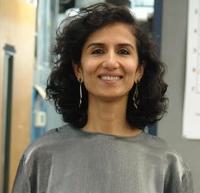Date:
Location:
How to Enhance STEM by Making it Inclusive
 Chandralekha Singh, PhD
Chandralekha Singh, PhD
Professor
Department of Physics and Astronomy
University of Pittsburgh
Instructors often exclusively focus on content and pedagogical approaches to improve student engagement and learning in STEM courses. However, students’ motivational characteristics can also play an important role in their engagement and success in STEM. For example, students’ sense of belonging in a STEM class, their self-efficacy, and views about whether intelligence in STEM is “fixed” or “malleable” can affect engagement and learning. These types of concerns can especially impact the learning outcomes of women and racial/ethnic minority students and stereotype threats can exacerbate these issues. I will discuss prior research studies that show how different types of social psychological interventions (e.g., social belonging and growth mindset) have improved the motivation and learning outcomes of all students, especially women and underrepresented minorities in STEM fields. These interventions include providing data to students about how intelligence is malleable and one can become an expert in a discipline by working hard in a deliberate manner, sharing with students examples of testimonies of past students with diverse backgrounds who struggled initially but then succeeded by working hard and using deliberate practice. I will discuss how these interventions were adapted and implemented in physics classes and how they improved the performance of underrepresented students in those classes compared to the comparison group.
Biography:
Chandralekha Singh is a professor in the Department of Physics and Astronomy and the Founding Director of the Discipline-based Science Education Research Center (dB-SERC) at the University of Pittsburgh. She obtained her Ph.D. in theoretical condensed matter physics from the University of California Santa Barbara and was a postdoctoral fellow at the University of Illinois Urbana Champaign, before joining the University of Pittsburgh. She is also currently the President of the American Association of Physics Teachers. She co-led the US team to the International Conference on Women in Physics in Birmingham UK in 2017. She is a Fellow of the American Physical Society, American Association of Physics Teachers and American Association for the Advancement of Science.
